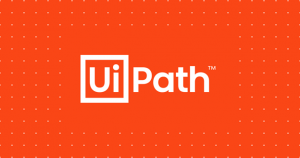
If you’re new to investing in artificial intelligence (AI), the AI stocks you probably started with were Microsoft (NASDAQ:MSFT), Nvidia (NASDAQ:NVDA), and Alphabet (NASDAQ:GOOGL)/(NASDAQ:GOOG).
They are all good companies and all big into AI.
However, I’m more interested in the less obvious selections. Tech names that either are smaller and fly below the radar or larger businesses utilizing AI to grow their businesses.
While AI is still relatively new to most investors, 10 years from now, we’ll all be AI-conversant. Buying AI exposure stocks before the technology is commonplace will result in some wins and losses.
Trying to separate the two won’t be easy. Microsoft could flame out — although highly unlikely — while some cryptocurrency-turned-AI specialist could be the trillion-dollar name none of us predicted.
This is a game of long odds. The average investor should manage their expectations accordingly, allocating a small portion of their portfolio to future technologies investing.
Here are my three suggestions to move beyond Microsoft et al.
UiPath (PATH)
UiPath (NYSE:PATH) is one of the innovative tech companies involved in Robotic Process Automation (RPA). Its UiPath Business Automation Platform helps make businesses more efficient by automating processes and tasks within the enterprise.
Founded in Bucharest, Romania, in 2005, it has moved away from RPA into an end-to-end AI-powered automation platform.
“The evolution of AI, which refers to decision-making capabilities demonstrated by computer programs, has now enabled the automation of processes with characteristics — such as high variability, inherent uncertainty, and unstructured data — that would have been impossible to automate with RPA alone,” stated the company’s 2023 10-K.
In March, I included UiPath in a group of seven fintech stocks investors should buy or at least put on their watch lists. My rationale was simple: The company’s platform was helpful for tasks across an entire company. AI will only multiply its usefulness.
The company is also the fifth-largest holding (5.7% weighting) in Cathie Woods’ ARK Fintech Innovation ETF (NYSEARCA:ARKF). For all the haters out there, ARKF is up 68% year-to-date (YTD), nearly 20 percentage points more than PATH, which is also having a good year.
In addition, it’s getting closer to GAAP profitability. For now, investors will have to be happy with fiscal 2024 revenue of $1.27 billion and a non-GAAP operating profit of $168 million.
Toast (TOST)
Toast (NYSE:TOST) has come under fire recently for its plan to charge the restaurant software provider’s customers a 99-cent processing fee for online orders over $10.
So far, the reaction hasn’t been positive from the restaurant industry.
PaymentsDive reported that during a recent interview, a research manager who follows hospitality and travel digital transformation strategies at IDC, Dorothy Creamer, said that “competitors are more likely to … position themselves away from Toast in that regard.”
Restaurant owners believed the company went too far to generate additional forms of revenue.
On July 19, the company relented and dropped plans to implement the fee. Chief Executive Officer (CEO) Chris Comparato said about the fee, “While we had the best of intentions — to keep costs low for our customers — that is not how the change was perceived by some of you. We made the wrong decision and following a careful review, including the additional feedback we received, the fee will be removed from our Toast digital ordering channels.”
I’ve been a fan of Toast for some time. Listening to your customers is what good companies do. In February, I discussed three reasons why investors should buy TOST stock. It’s up almost 16% since.
Of the three reasons, the valuation was my strongest argument. Essentially, it was trading at just 2.9x its 2023 sales guidance of $3.62 billion. When it went public in September 2021, TOST stock was valued at 12x sales.
In May, when it announced Q1 2023 results, its guidance for revenue for the year was revised upward to $3.75 billion at the midpoint, with adjusted earnings before interest, taxes, depreciation and amortization (EBITDA) of breakeven, up from a $20 million loss previously.
Thanks to the stock’s 28.5% gain in 2023, it trades at 3.2x its 2023 guidance. While slightly higher than in February, it’s still much lower than in 2021, with a lower adjusted EBITDA loss.
With the advent of AI, regardless of the fee discussion, it will finish the year well above 100,000 total locations, up from 79,000 at the end of 2022.
Innodata (INOD)

The micro-cap stock is having a good year in the markets, up 327% YTD. If you’re one of the risk-takers to bet on Innodata (NASDAQ:INOD) at the beginning of the year, you are to be commended for your foresight.
Innodata helps companies digitalize their businesses, emphasizing AI data annotation and collection. It recently signed a deal with one of the world’s five-largest technology companies. Innodata’s been tasked with training that company’s customers on AI large language models (LLMs).
The revenue generated from this contract is expected to be $8 million through the end of 2023, with future annual revenues as high as $15 million.
“We believe that this new relationship — together with the wins we announced on June 14 and June 27 — are potentially transformative for Innodata,” stated CEO Jack Abuhoff.
The company executive also said, “We have a solid track record of land-and-expand with large tech companies, and with the additional tailwinds of generative AI, we believe we’re extremely well-positioned. We believe the revenue growth opportunity with these companies is significant in the near, medium, and long-term.”
The other two deals mentioned by Abuhoff should generate at least an additional $8 million in 2023 revenue. While the June 27 announcement didn’t mention any dollars, the company involved is one of the world’s largest cloud infrastructure and platform services companies. I would imagine it, too, would be in the millions.
Conservatively, the three announcements are worth $20 million in 2023 revenue. That would be 25% of its 2022 revenue of $79.0 million. That’s no small amount.
However, the money isn’t the most important part of these contracts. That would be its ability to prove it is a legitimate player in AI. To me, that is worth so much more than $2o million.
Stay tuned.
On the date of publication, Will Ashworth did not hold (either directly or indirectly) any positions in the securities mentioned in this article. The opinions expressed in this article are those of the writer, subject to the InvestorPlace.com Publishing Guidelines.









